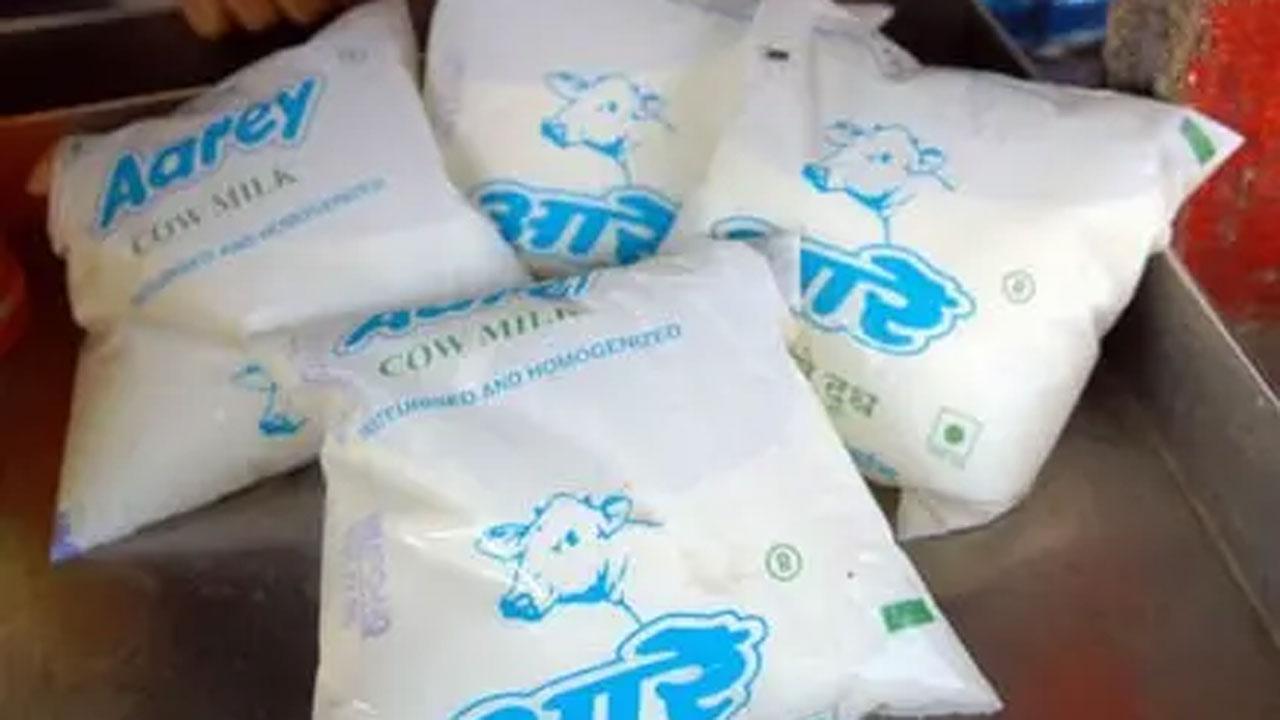Cow's milk is also a major source of protein in the American diet.

Image for representational purposes only. Photo Courtesy: iStock
More people are consuming plant-based milk substitutes such as oats, soy, and almonds, but do plant-based products provide the same nutrition as cow's milk? According to the findings of a new survey, the majority do not. Cow's milk is an important source of calcium and vitamin D, both of which are identified in the 2020-2025 Dietary Guidelines for Americans as nutrients of public health concern for underconsumption. Cow's milk is also a major source of protein in the American diet.
ADVERTISEMENT
To assess how the nutritional content of plant-based milk alternatives compares to that of cow's milk, researchers examined more than 200 plant-based milk alternative products being sold in the U.S. in 2023 ' many more products than were included in previous studies. Compared to cow's milk, only 12% of the milk alternative products contained comparable or greater amounts of all three nutrients studied: calcium, vitamin D, and protein.
Abigail Johnson, assistant professor and associate director of the University of Minnesota School of Public Health Nutrition Coordinating Center, will present the findings at NUTRITION 2023, the annual flagship meeting of the American Society for Nutrition held July 22-25 in Boston.
'Our results provide evidence that many plant-based milk alternatives are not nutritionally equivalent to cow's milk," said Johnson. 'Based on these findings, consumers should look for plant-based milk alternative products that list calcium and vitamin D as ingredients. They may also want to consider adding other sources of calcium and vitamin D to their diets."
The University of Minnesota's Nutrition Coordinating Center maintains a database of approximately 19,000 foods for assessing dietary intake in human research. 'We know from our dietary assessments for nutrition studies that consumers are choosing more plant-based milk alternatives," said Johnson. 'This project aimed to increase the number of these milk alternatives available in the Nutrition Coordinating Center's database of foods."
The study included nutrition information from nutrition facts labels and ingredient information for 233 plant-based milk alternative products from 23 different manufacturers. For each product, the researchers applied a nutrient calculation program to estimate full nutrient information. They then compared the nutritional content of different products within a category ' for example, almond milk, oat milk, and soy milk ' to each other and to cow's milk. Compared to dairy milk, just 28 of the plant-based alternatives had similar or more calcium, vitamin D and protein.
Almost two-thirds of the products included in the study were made from almonds, oats, or soy. The researchers found that 170 of the plant-based milk alternatives were fortified with both calcium and vitamin D and that the level of fortification tended to be similar to dairy milk. Specifically, 76% of the oat-based products, 69% of soy-based, and 66% of almond-based alternatives were fortified with both calcium and vitamin D. The median protein content was 2.0 grams (g) of protein per 240 milliliters (ml) of liquid, with a large variability that ranged from 0 to 12 g. Only 38 (16%) of the milk alternatives studied had a protein level greater than or equal to the 8 g per 240 ml found in cow's milk. Soy- and pea-based alternatives were more likely to have higher protein.
'Our findings point to a need to ensure that consumers are aware that many plant-based milk alternative products in the marketplace today are not nutritionally equivalent to cow's milk," said Johnson. 'Product labeling requirements and dietary guidance to the public are among the approaches that may be helpful in alerting and educating consumers."
Next, the researchers plan to explore other nutrients in plant-based milk alternatives that make them different from cow's milk. For example, many of these products contain fiber, suggesting that they may help meet some nutritional needs that cow's milk doesn't.
This story has been sourced from a third party syndicated feed, agencies. Mid-day accepts no responsibility or liability for its dependability, trustworthiness, reliability and data of the text. Mid-day management/mid-day.com reserves the sole right to alter, delete or remove (without notice) the content in its absolute discretion for any reason whatsoever
 Subscribe today by clicking the link and stay updated with the latest news!" Click here!
Subscribe today by clicking the link and stay updated with the latest news!" Click here!







